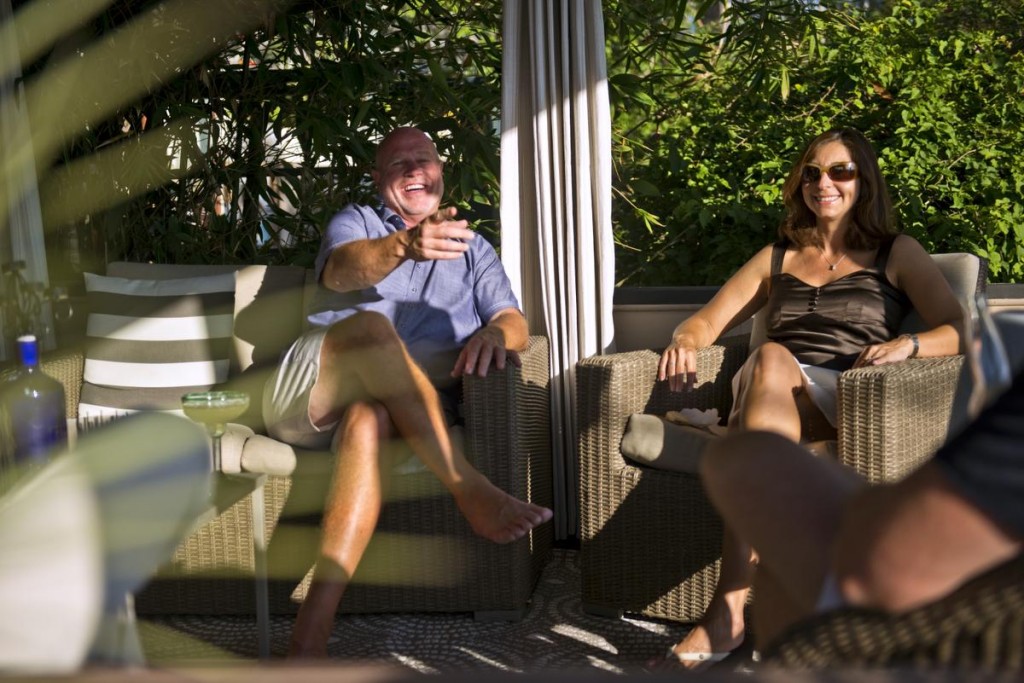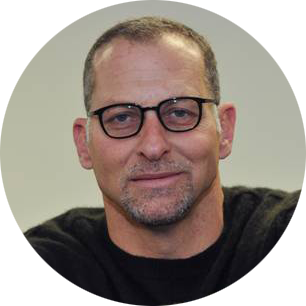
Dr. Marcela Dominguez visits her concierge patient Greg Smith at his Laguna Beach home.
When Greg Smith wants an appointment to see a digestive specialist for his acid reflux problem, all he has to do is text his primary doctor.
All Dr. Marcela Dominguez has to do is text the specialist down the street from her Mission Viejo office to get that appointment for Smith. He gets in and treated without the customary formal referral or waiting period.
“It’s like having your doctor in your pocket,” said Smith, 55, of Laguna Beach.
That’s how Smith has felt in the last three years he has opted for concierge medicine, a health care system in which a patient pays an annual fee or retainer in exchange for more time, attention and better access to his or her medical providers.
Concierge medicine and other forms of more personalized care are gaining in popularity with patients nationwide. In a concierge network, doctors establish a more intimate relationship with patients – from going on walks together, to working out together or even to grocery shopping as a team.
It’s where old-fashioned family doctor meets New Age life coach, at an average cost starting at about $1,500 annually.
“It really feels like I have a family doctor,” Smith said.
Dominguez came up with a health care plan for Smith which includes everything from managing his weight and cholesterol to his sleep patterns.
During a recent office visit, Dominguez asked him questions many other physicians might not.
Did he drink enough water? Did he watch violent TV shows before going to bed? How was the new herbal sleep medication working out for him? Did he eat anything he shouldn’t have been eating? Like salmon, to which he is intolerant?
“Dr. D, I caved,” Smith said. “I had half a piece of salmon at this sushi place yesterday, for lunch. It was so buttery. I had to try it.”
“Oh, that sounds good,” Dominguez said. “As long as it’s all in moderation, right?”
Smith and Dominguez also meet socially. During the visit, he invited the doctor and her husband, who also live in Laguna Beach, to his “famous Friday evening balcony boondoggle.”
“We just hang out on the balcony,” he said. “People walk in and out. It’s fun.”
Dominguez and Smith made plans to meet at his gym the following week. They’ve been gym partners a couple of times.
“It helps when we work out together,” Smith said. “My trainer makes me work hard. But he’s young and not as experienced. So, when my doctor says I’m doing too much of something or not enough of something, I listen.”
Smith says he’s seen the results over the last 2 1/2 years.
“I’ve lost 20 pounds of fat, gained muscle,” he said. “I bike uphill. I can do 40 elevated pushups.”
Dominguez says it works because it’s a partnership between doctor and patient.
“You sit down together and come up with goals,” she said. “There’s an understanding that we need to work on those goals together and the doctor can help you do that.”
Dominguez also sees regular patients – about 3,000 – who come with health insurance. But she now has about 100 concierge patients. Eventually, she hopes to switch to an all-concierge clientele.
“Being able to give such a high level of care to patients is very satisfying for me,” she said. “The system does not allow this kind of care. The system insists that you see so many patients in one day to keep the doors open.”
More and more doctors, like Dominguez, have started to make concierge medicine more personal. Dr. Joseph Barry, who practices in Syracuse, N.Y., says concierge medicine makes him feel like a physician as opposed to an impersonal “provider.”
He likes to think he has taken concierge medicine to the next level.
“I feel like I’m getting back to my roots as a physician,” he said. “I’m getting past the ailments and to the wellness aspect.”
When one of his patients recently had hip surgery, Barry went to see him in the hospital. He worked with the patient’s surgeon and hospital staff to make sure he got the needed care.
“I act as a guardian and advocate for my patients as well,” he said.
Barry also has his own booth at the local farmers market. He’ll do cooking demos and talk about ways to incorporate seasonal vegetables and fruits. Every other week, he meets a couple of hundred patients to go on a hike. He splits them up in groups of 10 to 15 and discusses health and wellness issues.
On another day, he might take a group of 40 to the ballpark. During these excursions, Barry says he makes the time to talk and answer questions.
He also makes house calls on patients who are elderly, have dementia or have recently undergone surgery and can’t drive.
“I got into medicine to take care of people, not numbers on a chart,” Barry said. “Being able to do that has revolutionized my life.”
Both Dominguez and Barry are part of SignatureMD, a national network of concierge medicine providers.
Personalized medicine is getting more popular at a time when doctors and patients seem to be tired of the “conveyor belt” mentality.
Dr. Renee Dua, a Santa Monica-based doctor, is the co-founder of Heal, an on-demand service for doctor house calls in Orange and Los Angeles counties, which on Tuesday formed a partnership with Anthem Blue Cross of California.
Heal gives patients access to doctors who make house calls for a flat fee of $99 per visit. Those with insurance or a Heal membership are only responsible for a co-pay. Patients can use smartphone apps to schedule same-day appointments and a doctor can come out to see them in as little as two hours.
“The doctor will try to do as much as possible during the home visit, whether it’s drawing blood or giving flu shots,” Dua said. “If patients want to see the same doctor each time, they can request that as well, although the doctor may not be available if the patient is in an emergency situation.”
The app was launched in Orange County two months ago and in Los Angeles in February, she said. The Heal network has more than 100 doctors.
Dua said this is slightly different from concierge medicine, which tends to be for wealthier patients. Heal is directed at those who may not have money to purchase insurance or who may put off going to the doctor because life gets in the way.
When a doctor goes to a patient’s home to provide care, he or she becomes a part of the environment, Dua said.
“When you go to see the doctor in his or her office, you may lie to them about smoking, exercising or eating habits,” she said. “But doctors come to your home, they see the cigarettes on the counter and the bag of Doritos tucked away in the kitchen shelf.”


